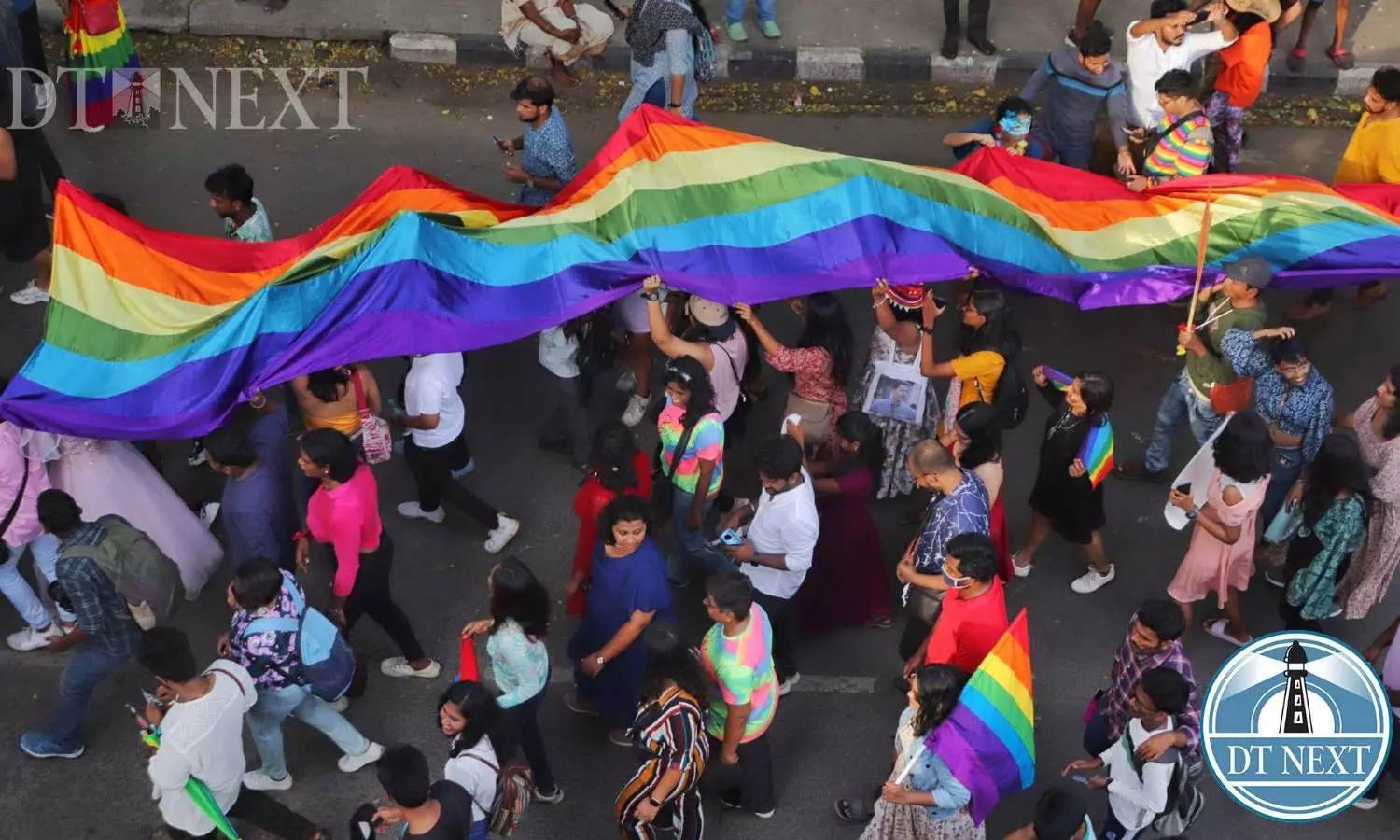
• I don’t identify as transgender. But I’m clearly gender not-normal. I don’t think even lesbian is the right identity for me. I might as well come out now. I identify as tired. I’m just tired.” In her groundbreaking Netflix standup debut titled Nanette, which was released partly as a response to the public discourse in Australia that prompted the legalisation of same-sex marriages, the indefatigable comedian Hannah Gadsby offered a blistering takedown of what it meant to live on the margins of what was considered traditionally acceptable sexuality. Gadsby’s routine was scaldingly hilarious, but profoundly insightful and thought-provoking. And it’s something all of us should visit, or revisit on Pride Day.
This month, Thailand’s Senate voted to approve a bill that would legalize same-sex marriage, clearing the last legislative hurdle for the country to become the first in Southeast Asia to enact such a law. Thanks to this law, Thailand will become the third place in Asia, after Taiwan and Nepal, to allow same-sex marriage. The marriage equality bill grants full legal, financial and medical rights for marriage partners of any gender.
Interestingly, the passage of the bill did see a fair share of hurdles. A Senate member argued that gender-specific terms should still be included in the law along with the gender-neutral terms. He reiterated that excluding them would be a severe ‘subversion of the institution of family’ in Thailand. The lawmaker's concerns would have found a deep resonance in India, where the question of marriage equality keeps getting tossed around — from the High Courts in various states to the Supreme Court, and to the Parliament.
Last October, our apex court refused to legalise same-sex unions, diminishing the hopes of millions of LGBTQIA+ people seeking marriage equality. The Supreme Court instead agreed to the government's offer to set up a panel to consider granting more legal rights and benefits to same-sex couples. Religious figureheads and government officials insisted that only the parliament could discuss the socio-legal aspects of marriage, and argued that allowing same-sex marriage would lead to ‘chaos’ in society.
One only needs to look at the nations where such reforms have been enacted to get an inkling of this chaos. As of this year, marriage between same-sex couples is legally performed and recognised in as many as 37 countries. Several first world economies including Australia, Austria, France, Greece, the Netherlands, Spain, the UK and parts of the US have legalised such unions.
None of them have presented empirical data proving that doing so has contributed to the systematic breakdown of families or heteronormative relationships. So what are we trying to hold onto here — culture, values or plain old bigotry? India has a horrid track record, vis-a-vis dealing with intimate partner violence. We shudder at the mention of criminalising marital rape. And we are still iffy on the subject of marriage equality.
Kerala has now taken baby steps as its Social Justice Department has launched a Marriage Assistance programme for legally married transgender couples who have undergone Sex Reassignment Surgery (SRS). The Tamil Nadu government published a glossary of terms on respectfully addressing members of the LGBTQIA+ community in public. It might be a drop in the ocean, but we are getting there. Recognising civil unions between same sex couples, offering them the same rights and liberties vis-a-vis adoption, inheritance and other aspects of citizenry will not diminish our values. It will instead offer India a ‘pride of place’ in inclusivity and diversity.


